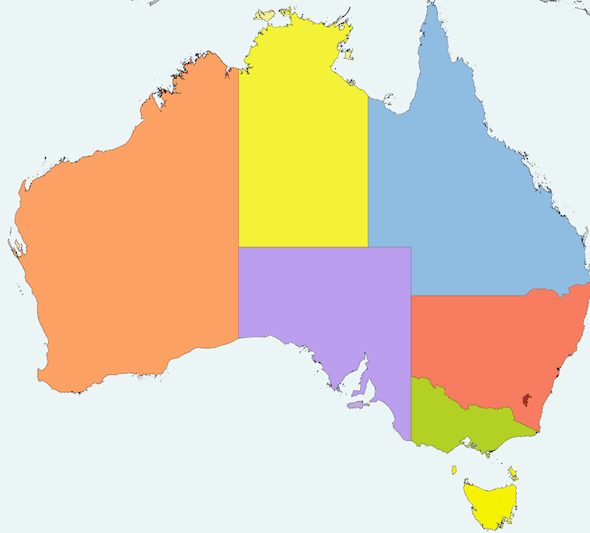In what is becoming a familiar pattern among western nations whose federal governments are “sceptical” about climate science, Australia’s states and territories are being called upon to lead the national effort on climate change and the shift to a low-carbon future.
ACT environment minister Simon Corbell said on Monday that the Capital Territory – with its ambitious 90 per cent renewables and 40 per cent emissions targets – hoped to lead a state-based climate effort that would more than make up for Australia’s distinct lack of ambition on the federal front.
“The ACT has shown that states and territories can go far beyond their federal counterparts in taking steps to mitigate the effects of climate change,” Corbell said in statement ahead of a climate meeting in Adelaide with other state premiers and environment ministers.
“We need to work together, sharing information and resources to push towards a decarbonised future and the most effective way of abating carbon is to switch to large-scale renewable energy.”
Attending the meeting will be South Australian Premier Jay Weatherill, SA environment minister Ian Hunter, Victorian environment minister Lisa Neville and Queensland environment minister Steven Miles, as well as the executive secretary of the UN Framework Convention on Climate Change, Christiana Figueres.
As reported last month, Figueres attended a similar meeting with state and provincial leaders in Canada, whose Prime Minister Stephen Harper is more or less in lock-step with Australia’s Tony Abbott on matters climate.
Nine of Canada’s premiers met in mid-April at a provincial climate summit in Quebec City ahead of the international conference in Paris in December, to discuss the urgency of pricing carbon and using technology to reduce emissions.
That same week, the Ontario government agreed to join Quebec and California in a cap-and-trade system.
In a speech at the meeting, Ontario environment minister Glen Murray described climate change as something that scared the hell out of him.
“The possibilities of a low carbon economy keep me going, keep my hope up,” he said. “We are enough, to be able to tip the entire North American Economy to green technology. Its a great opportunity.”
The US is in a similar position, with its heavily Republican, climate denying Senate managing to shout down almost all of the Obama administrations clean energy and carbon pollution policy efforts – most recently, the House Committee on Science, Space and Technology voted to cut deeply into NASA’s budget for Earth science, in a clear swipe at the study of climate change. In a vote late last week, the Senate decided to reject climate science, by a ratio of 50-49.
America’s states, meanwhile, mostly appear to be getting on with business.
As we reported last week, California Governor Jerry Brown has issued an executive order to reduce California GHGs by 40 per cent below 1990 levels by 2030, following on from his call for utilities to be 50 per cent renewable, also by 2030.
And Texas, America’s “oil state”, has become on the nation’s leaders in renewable energy development.
In Australia, Canberra has done the same: with its use of reverse auctions to develop large-scale wind and solar, and strong policies to encourage roof-top solar, the ACT has already procured about 40 per cent of its energy needs from renewable sources.
Upcoming reverse auctions for large-scale next generation solar and more large-scale wind will push the ACT over its 90 per cent target.
“We have proven that making the switch to renewable energy generation is only achievable but that it’s affordable,” Corbell said.
“The cost of meeting our nation-leading target peaks at only about $4 per household per week and this is offset by savings from mandated energy efficiency improvement schemes,” he added.
“The (Adelaide) meeting… is a useful opportunity for domestic jurisdictions to outline their progress in responding to climate change and reducing carbon emissions.
It is also, Corbell said, an “important opportunity for discussion on how all governments could collaborate to improve overall outcomes.”








